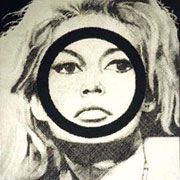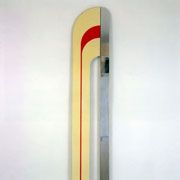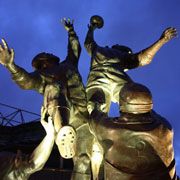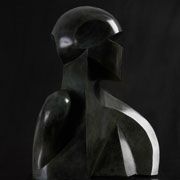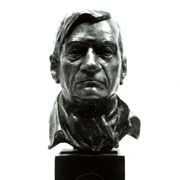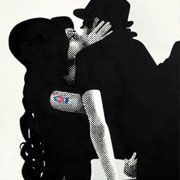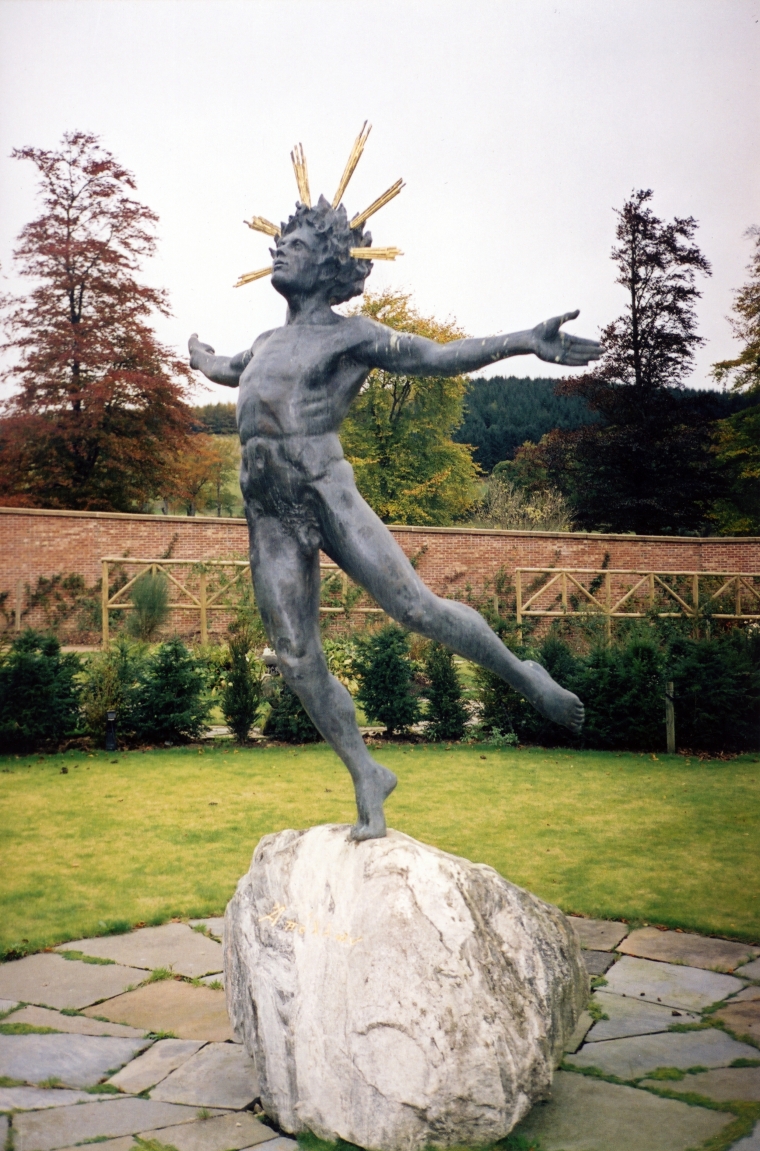
Catalogue Raisonné. Apollo
Search the Catalogue
Apollo
Catalogue No. 609
Artist's CR 559
December - February, 1996
Kinkell
Bronze on stone base
90 inches / 229 cm , height
Collection: Unknown
- Gerald Laing, 'Apostasy', Northern Review, 1998
- Gerald Laing: Sculpture 1968–1999, exhibition catalogue, The Fine Art Society, 1999
- Gerald Laing: Sculpture at Chisenbury Priory, exhibition catalogue, Chisenbury Priory, 2002
The pose derives from William Blake’s painting The Dance of Albion (Glad Day) (c.1796), which was itself inspired by Leonardo da Vinci’s Vitruvian Man (c.1490).
When I was making Apollo, which became a quest for an ideal male image, I found it very helpful to look at two sculptures by the same artist - Lord Leighton - which were at that time exhibited side by side in the Tate Gallery. They are Athlete Wrestling with a Python (1874) and The Sluggard (1882). The first predates the influence wrought by the arrival of the French exiles in London, and is carried out in a typically rigorous and formal mid-nineteenth century Classical manner; the second, which is almost the equivalent of a modern super-realist work and is far more obviously homoerotic is a perfect example of the Romantic and evidently the result of the influence of [Aimé-Jules] Dalou in particular.
Gerald Laing: Sculpture at Chisenbury Priory, Gerald Laing, exhibition catalogue, Chisenbury Priory, 2002

